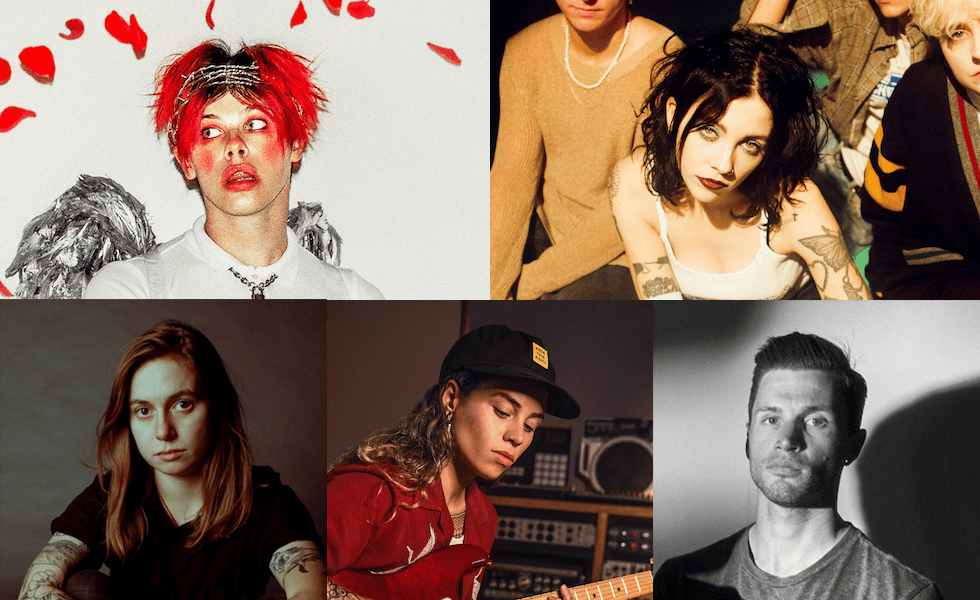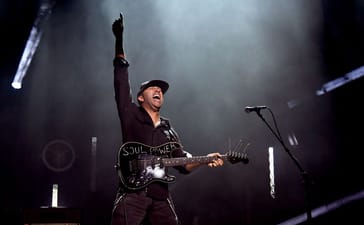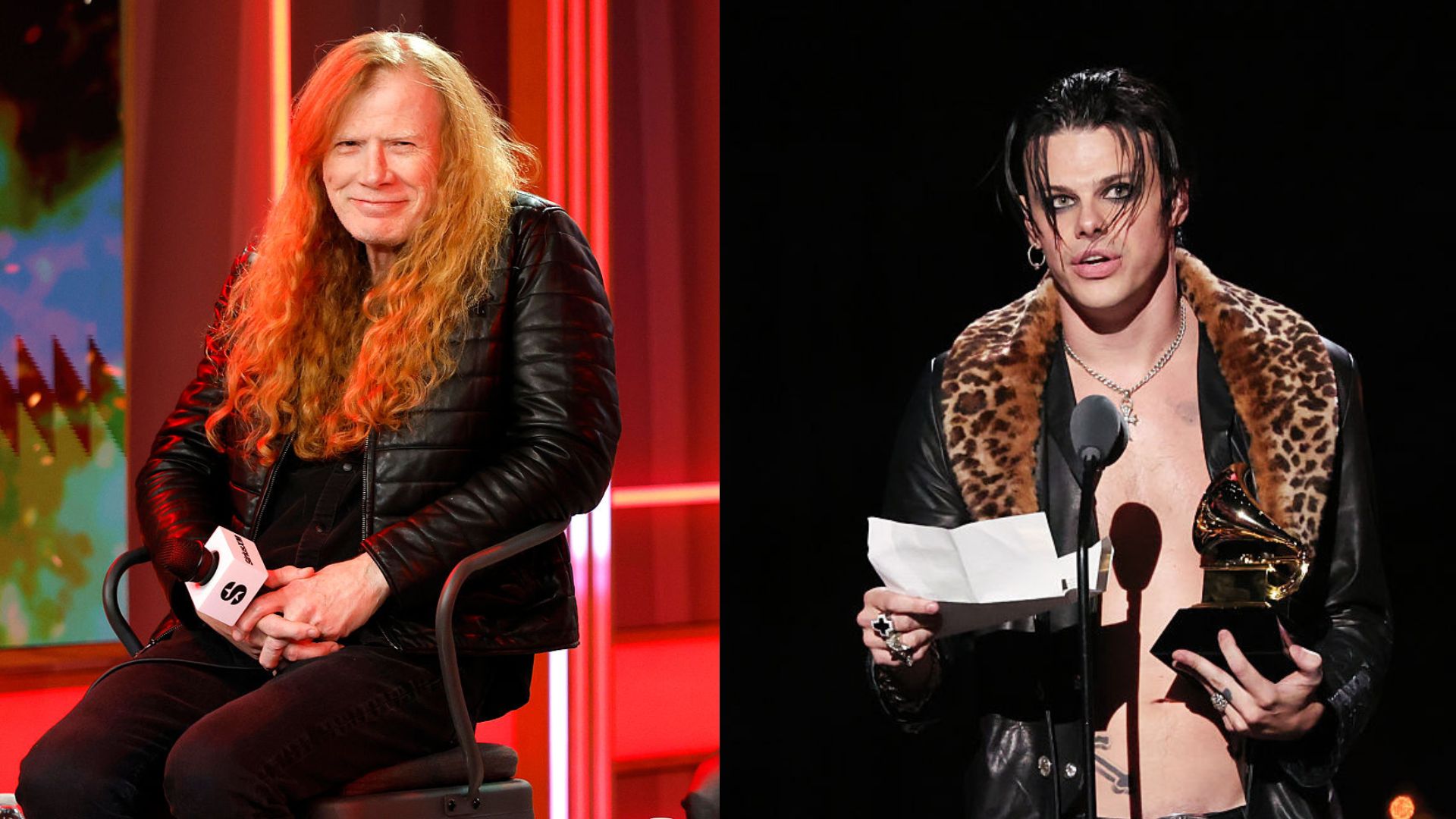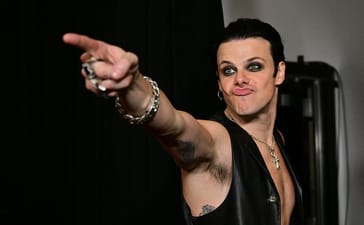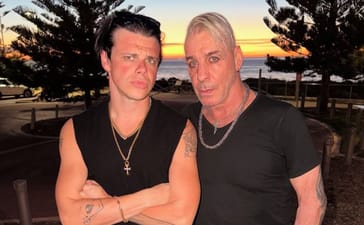No matter how talented a performer you are, performing to a crowd of thousands – almost all of whom are total strangers, explicitly there to be entertained by you – can be incredibly daunting. And when all those punters know of you is your fastidiously produced studio work, where the notes they hear are pulled from take #348, slathered in effects and engineered to a T, any small, honest mistake will stand out like a sore thumb.
So how does an artist like Tash Sultana – who typically plays a solid dozen instruments at a time, to fields and arenas packed like sardines with adoring (if punishingly judgemental) psych-rock fans – get over that initial wallop of pressure? How does Yungblud stand in front of a crowd of over-caffeinated kids, clad in mismatched, androgynous garb, and not only act as though he’s any any different to them, but as though he has the answers to their burning teen-angst-driven questions? Ditto for Heather Baron-Gracie, the voice behind ‘00s-channeling grunge-pop revivalists Pale Waves?
And what about Julien Baker? She is one exceptionally tiny human, and her songs tend to sway more to the twee, lowkey and vibe-y side – how does she make them feel authentic when her crowds sprawl out as far as the eye can see? And what about when the music is explosive and intense, soaked in rage and excitement and visceral power? How does Architects guitarist Adam Christianson, for example, make his ravenous riffs sound like they’re played by a cosmic force of impenetrable fury, when he is but a mere mortal?
Well… Why don’t we go straight to the source?
How do you deal with stage fright?
YUNGBLUD
Oasis and lager. Initially it was that, but I don’t know, I don’t think I’ve ever had a problem with stage-fright; I always couldn’t wait to get onstage! That sounds so wanky, but I’d literally be sitting there with my knee shaking, going, “Can we go on yet?” I love it! I think if I had any advice for someone who does have stage-fright, it would be to find individual people and connect to them. Because you’ve gotta remember, it ain’t just you putting out the energy.
Performers find it so daunting because they’re like, “I have to carry a show for an hour, all on my own!” But it’s like… No you don’t. There’s 10,000 fucking people out there – let them do some of the work! My show is so inclusive because it’s so fucking loud. I’m up there onstage going, “Sing! Fucking go! Fucking give it to me, so I can do another 40 minutes of fucking this [waves arms around] and fucking this [shakes head like a maniac].” It’s just gotta be a two-way street.
I have to imagine that from your perspective onstage, seeing a bunch of your fans go ham to a track would make you feel pretty amped up yourself.
Completely! And at the end of the day, that’s just my style – I’m going to go on and grab you by the fucking scruff of the neck and go, “Let’s fucking go!” That’s my kind of performance style. So I would say that it’s not all on you. You’re in a team – your bandmates have got you. The crowd has got you – that’s why they’re there! You’re not going to go onstage and get eaten up – and if you’re playing a support show or something like that, just give it everything you’ve fucking got. Nobody can turn their nose up at energy and magic.
JULIEN BAKER
I still have such incredible stage-fright. And I wish I could say I had some sort of remedy, whether it be chemical or mental, that made me feel good before a show. But jeez, y’know, I could be playing a theatre and do a really great set, but then just end, like, screaming into a trash can – that’s just how my brain works. And I think that’s how a lot of artists’ brains work. One thing I do to centre myself during a show is… Well, ‘confessing’ isn’t the right word, but like, admitting to the audience that you’re nervous. There’s nothing more vulnerable that you can do. And I say that, but I don’t want it to come off as though I’m, like, manipulating the audience to feel bad for me because I’m nervous.
What I’m saying is: when you admit to the audience that you’re in the same anticipatory state that they’re in – that you’re waiting to see how the song ends and if you play the right notes – then I think it’s very humanising and it establishes a much more… It’s like, the shows I always played as a kid were in houses and church basements and bars, and when you’re playing those kids of venues, you’re really only messing up in front of people that don’t care if you mess up. Y’know, half the shows that we played as teenagers were to the other bands, and that was it! The other bands waiting to play are just standing around and watching you.
Music has always been this very transparent and shared experience for me, so I think whenever I get into a situation where I’m projecting these expectations – like, “This is a big theatre show!” Or, “This is a show in New York City!” – I try to remind myself that there are a whole bunch of people out there that aren’t inherently arriving to the show wishing for me to fail. They’re looking for something that will connect them to me, and to each other, and not something that will make them disappointed, y’know?
Having that kind of rapport with the audience is so gratifying. And dude, that’s what sucks so much about not playing shows: when I’m playing a pre-taped livestream to cameramen and your own monitors, I’m never going to be happy with myself, y’know? I’m gonna do 100 takes, until I feel like it’s perfect for the people watching. And part of what was so therapeutic about performing live was that you only get one try, and that’s your best try! And you trust the people watching you to like it.
There’s a human element to performing in front of a crowd that you just can’t replicate for a camera.
Oh my gosh, yeah. I was talking about this recently with a couple of my friends – it’s like, the way that quarantine, and doing all these pre-taped… Like, I enjoy livestreams, but I think the challenge was just that everybody was doing them, and they all had shitty audio and were breaking up all the time – it was like a meme! We couldn’t get them right. I don’t know, there’s something odd about pre-taping a live performance, where the fact that it’s not immediate gives you this license to be infinitely self-critical.
HEATHER BARON-GRACIE (VOCALIST AND GUITARIST, PALE WAVES)
I feel like it gets easier the more you do it, weirdly. At the start of our career, I was literally a deer in headlights – it was so nerve-wracking, because you look out to the audience and there’s just so many eyes looking up to you. I think you’ve just gotta go on with pure confidence and think, “Well, I’m on the stage, and they’re here to see me, so I must be doing something right!” Y’know? And if you’re in a band it’s a lot easier, because you’re essentially just jamming out with your friends – you have that natural comfort of being like, “Okay, we’re a unit, it’s not just me.” I have so much sympathy for solo artists, because I would be way more intimidated in that situation – but I have my friends with me all the time, so I feel a natural comfort.
So if you’re in a band, then y’know, just think of it as having fun with your mates, just playing the way you would in practise. But if you’re a solo artist, I would just say have confidence in yourself, because you’re on that stage, and everyone there has come to support you. You already have the upper hand, in a way. Don’t be so nervous, because they’re there to watch you!
ADAM CHRISTIANSON (GUITARIST, ARCHITECTS)
I think a lot of it is experience. I obviously can’t speak for everyone else, but you do still get nervous – there’s really no point when you’re just immune to that – that’s just part of it, right? If you’re not getting at least a little bit nervous, then what’s the point? That’s exciting! But I think a lot of getting into that headspace comes down to experience. Y’know, I’ve been performing since my high school band days – I’ve been performing since I was, like, 10 or 12 years old. So I’ve been doing it for a long time.
But I think a lot of it is just doing it – you kind of cut your teeth and get used to it. Especially if you’re learning new songs or you haven’t performed something before, you can spend countless hours at home practicing, but until you’ve performed a song live, you don’t really know how to play it. Because that’s the heat of the moment – you’re thrown right in, right? So I think a lot of it is just doing it – sometimes you have to just jump in at the deep end of the pool to learn how to swim.
TASH SULTANA
Oh mate, I’ve got a really hectic pre-show ritual to get into the zone before I get into the zone. Everyone’s a little bit different – I get sensory overload, so I need to get away from people for a period of time before I go onstage. I didn’t really do that when I was an up-and-coming act, but now that it’s sort of become a business… And it is a business, y’know? You’re representing your label, you’re representing your management, you’re representing your promotors – you’re representing all these people who have spent a lot of money on tickets and all that – you’ve gotta treat it like an Olympic sport, y’know?
I don’t drink, I don’t smoke… I lock myself in my room and do light therapy, use essential oils – I do intravenous intramuscular vitamin injections and stuff like that, just to keep me strong. When I was starting out, I was slinging pints and just walking out onstage and thinking, “Ah, I’m doing a good job!” Your best bet is experience – that’s the only way you’re ever going to find out what works for you. So you can’t get too big for your boots and decide that you don’t want to do this and you don’t want to do that – you’ve gotta be hungry and determined, and you need to take every single opportunity that you can possibly get.
Because quite frankly, you don’t know who’s in that crowd, or who that crowd knows. That’s how it kind of happened for me – it was all word of mouth. I thought I was playing all these gigs in front of total strangers, but those strangers turned out to be people in the music industry – and look at where I am today! And that was mainly just from word-of-mouth; this was well and truly before any viral sensation happened. So the best thing you can do is go out there and be physical, because that’s when people look at you and go, “You’re not just a bedroom artist – you have this authenticity and this truth, and you’re worth putting on a show.”
Be hungry! Hungrier than the person next to you! If you see someone hungrier than you, fucking eat them too! Try! Try! Try! And then when you make it, don’t lose that hunger. I’m where I’m at, but I’m not done – I’m never going to be done. I’m still hungry for what’s next.


